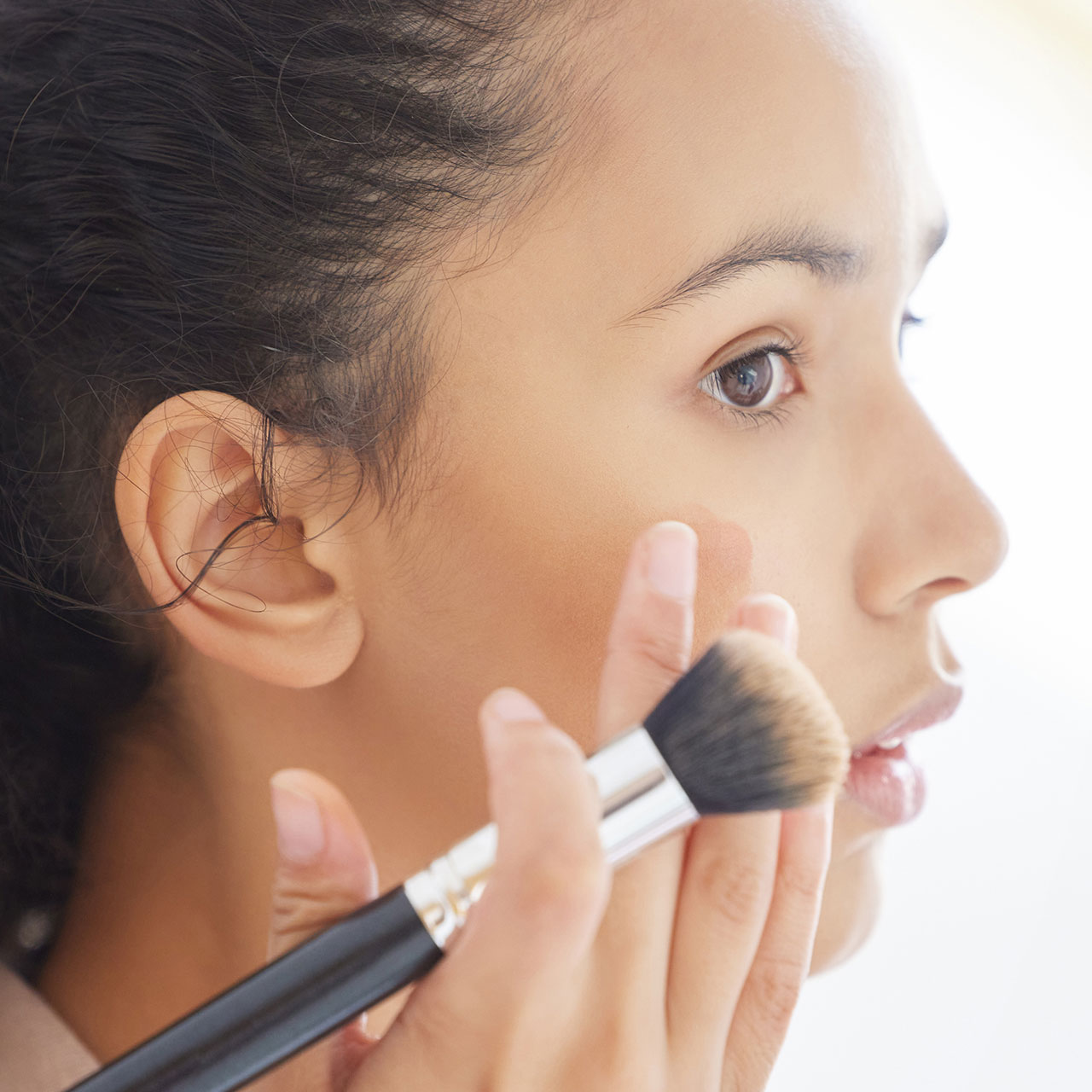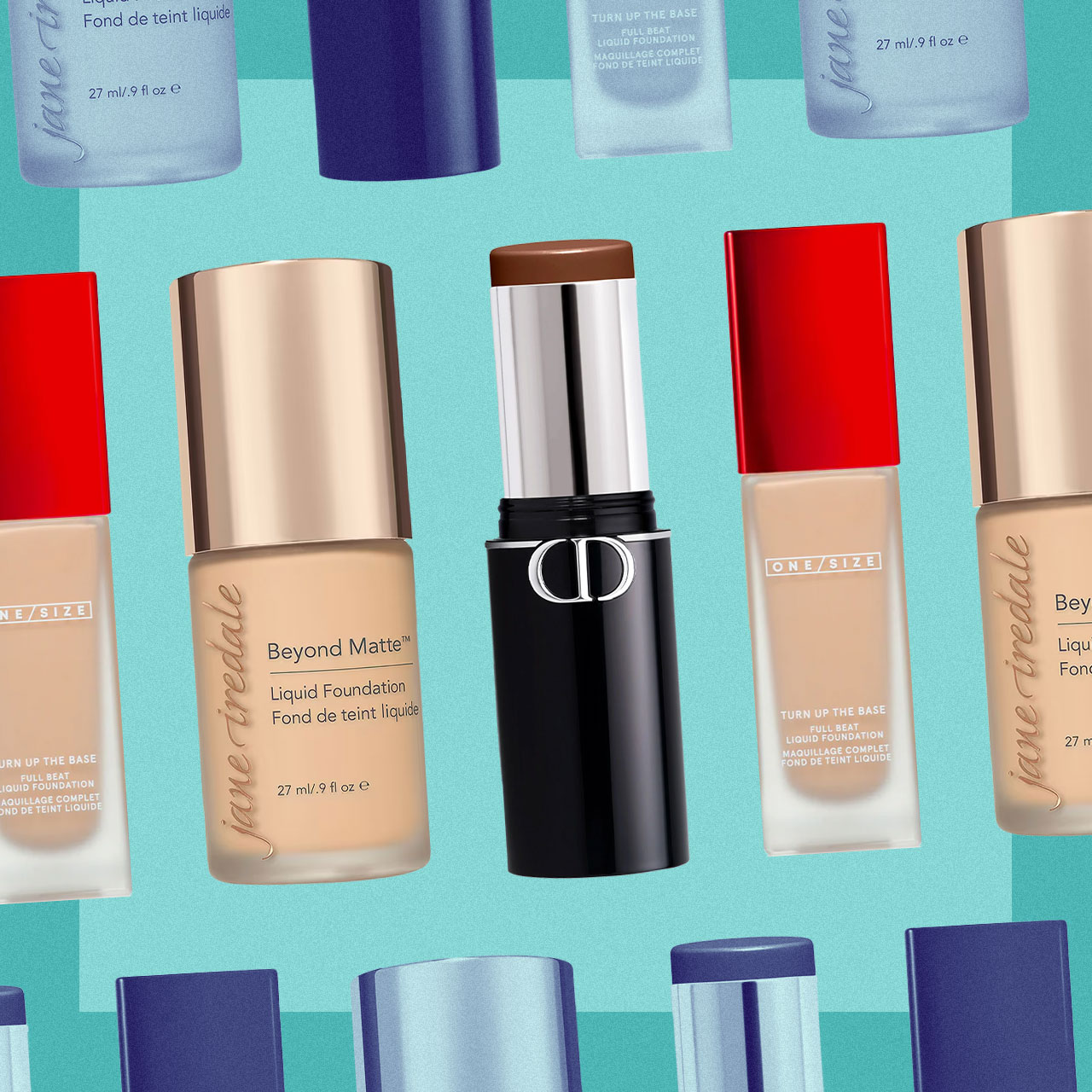When you were younger, your parents may have nagged you about always applying sunscreen before heading outdoors in the summer—and guess what? They were right! In fact, many experts will tell you that wearing SPF is essential every single day, no matter the season or the weather—and regardless of whether or not you’ll be spending time outside. That’s right: cloudy or not, indoors or outdoors, you should never forget this vital skincare step.
But why is it so important to wear sunscreen even if it’s overcast or you’re staying in the house? To find out, we spoke to skincare experts Jaclyn Palmieri, director of esthetics at Hand & Stone and Dr. Liia Ramachandra, PharmD, Ph.D. and CEO of EpiLynx. They told us all about the sneaky ways UV and blue light can damage your skin even when you may think you’re not at risk.


Protect your skin from blue light
You likely know by now that the main purpose of sunblock is to protect your skin from the sun's harmful UV rays—which means if you won't be outside in the sun, you don't need to worry about applying SPF, right? Actually, that's not true! Even when you're spending time indoors, you're exposing your skin to another type of harmful light: blue light from the screens of your devices.
"Not only is SPF important for ultraviolet rays, but with constant screen time from cell phones, tablets, and laptops, it's important to also protect your skin from the blue light from these devices as well," Palmieri explains.
While you may not end up with a sunburn from spending too much time on your laptop, you do but your skin at risk of other issues when you expose it to blue light without SPF protection. "Blue light from continued use of electronics can harm the collagen fibroblasts in your skin and contribute to oxidative stress," Palmieri warns. We had no idea!
So, next time you're heading into the office to work at your computer or just settling in for a long day of Netflix, don't forget that sunscreen is still a must.

UV rays pass through clouds
In addition to wearing sunblock indoors to protect yourself from blue light, let's not forget about one more reason you should wear sunscreen every single day: UV rays from the sun can damage your skin, even when it's cloudy out.
If you think you can skip out on sunscreen because the sun is covered by clouds, think again. Dr. Ramachandra says clouds don't hinder UV rays in the slightest. "There are always harmful UV rays that are there even when it is not sunny. They are just passing through the clouds," she explains.
In fact, a cloudy day may even cause more damage to your skin than a sunny one. "Sometimes UV radiation is even worse when it's cloudy since the rays bounce off the clouds onto your face," Dr. Ramachandra warns. Yikes! We had no idea.
It's important to note that you're risking more than a bad sunburn when you step outdoors without applying SPF. On a small scale, UV exposure can lead to unwanted beauty issues; Dr. Ramachandra and Palmieri list dark spots, discoloration, premature aging, and acne scarring, to name a few. But in addition to all of that, there's another huge health risk at hand: skin cancer. If you ask us, taking the extra time to apply sunscreen to your face every day is definitely worth protecting yourself.
All of this considered, it's safe to say that a good SPF is a must-have for any daily skincare routine. Rather than picking and choosing the days you'll wear sunscreen based on the amount of sun you think you'll be getting, it's best to follow Dr. Ramachandra's advice: "Wear sunscreen every day, all year long." Noted!


























